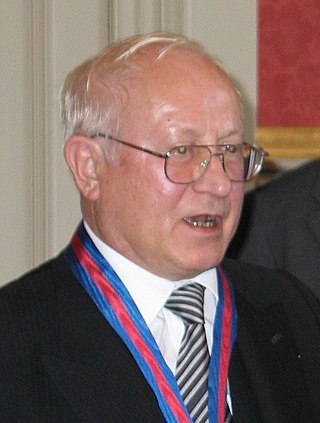Espionage, spying, or intelligence gathering is the act of obtaining secret or confidential information (intelligence). A person who commits espionage is called an espionage agent or spy. Any individual or spy ring, in the service of a government, company, criminal organization, or independent operation, can commit espionage. The practice is clandestine, as it is by definition unwelcome. In some circumstances, it may be a legal tool of law enforcement and in others, it may be illegal and punishable by law.
Spy fiction is a genre of literature involving espionage as an important context or plot device. It emerged in the early twentieth century, inspired by rivalries and intrigues between the major powers, and the establishment of modern intelligence agencies. It was given new impetus by the development of fascism and communism in the lead-up to World War II, continued to develop during the Cold War, and received a fresh impetus from the emergence of rogue states, international criminal organizations, global terrorist networks, maritime piracy and technological sabotage and espionage as potent threats to Western societies. As a genre, spy fiction is thematically related to the novel of adventure, the thriller and the politico-military thriller.

Cold War espionage describes the intelligence gathering activities during the Cold War between the Western allies and the Eastern Bloc. Both relied on a wide variety of military and civilian agencies in this pursuit.
Earl Edwin Pitts is a former FBI special agent who was convicted of espionage for selling information to Soviet and Russian intelligence services.

Oleg Antonovich Gordievsky, CMG is a former colonel of the KGB who became KGB resident-designate (rezident) and bureau chief in London. He was a double agent, providing information to the British Secret Intelligence Service (MI6) from 1974 to 1985. After being recalled to Moscow under suspicion, he was exfiltrated from the Soviet Union in July 1985 under a plan code-named Operation Pimlico. The Soviet Union subsequently sentenced him to death in absentia.
In espionage jargon, a mole is a long-term spy who is recruited before having access to secret intelligence, subsequently managing to get into the target organization. However, it is popularly used to mean any long-term clandestine spy or informant within an organization. In police work, a mole is an undercover law-enforcement agent who joins an organization in order to collect incriminating evidence about its operations and to eventually charge its members.

The Foreign Intelligence Service of the Russian Federation or SVR RF is Russia's external intelligence agency, focusing mainly on civilian affairs. The SVR RF succeeded the First Chief Directorate (PGU) of the KGB in December 1991. The SVR has its headquarters in the Yasenevo District of Moscow.

Directorate "V" of the FSB Special Purpose Center, often referred to as Spetsgruppa "V"Vympel, but also known as KGB Directorate "V", Vega Group, is an elite Russian special forces unit, under the command of the FSB.

Telefon is a 1977 spy film directed by Don Siegel and starring Charles Bronson, Lee Remick and Donald Pleasence. The screenplay by Peter Hyams and Stirling Silliphant is based on the 1975 novel by Walter Wager.

Lona Cohen, born Leontine Theresa Petka, also known as Helen Kroger, was an American who spied for the Soviet Union. She is known for her role in smuggling atomic bomb diagrams out of Los Alamos. She was a communist activist before marrying Morris Cohen. The couple became spies because of their communist beliefs.
As early as the 1920s, the Soviet Union, through its GRU, OGPU, NKVD, and KGB intelligence agencies, used Russian and foreign-born nationals, as well as Communists of American origin, to perform espionage activities in the United States, forming various spy rings. Particularly during the 1940s, some of these espionage networks had contact with various U.S. government agencies. These Soviet espionage networks illegally transmitted confidential information to Moscow, such as information on the development of the atomic bomb. Soviet spies also participated in propaganda and disinformation operations, known as active measures, and attempted to sabotage diplomatic relationships between the U.S. and its allies.

Melita Stedman Norwood was a British civil servant, Communist Party of Great Britain member and KGB spy.
Dmitri Aleksandrovich Bystrolyotov was a Soviet Russian intelligence officer, a polyglot, a writer and a Gulag prisoner. As a Soviet undercover operative, Bystrolyotov worked in Western Europe between World War I and II, recruiting and controlling several agents in Great Britain, France, Germany, and Italy. His greatest achievement was breaking into the British Foreign Office files years before Kim Philby, as well as procuring diplomatic ciphers of many of European countries. In the 1930s, he fell victim of Joseph Stalin's purges. Arrested by the NKVD on drummed up charges, he was tortured severely. While serving his term, he spent over 16 years in various Gulag camps. There, at great risk to himself, he wrote and smuggled his memoirs to the outside world, which were an indictment of the Communist Party of the Soviet Union's crimes against humanity.
Clandestine HUMINT asset recruiting refers to the recruitment of human agents, commonly known as spies, who work for a foreign government, or within a host country's government or other target of intelligence interest for the gathering of human intelligence. The work of detecting and "doubling" spies who betray their oaths to work on behalf of a foreign intelligence agency is an important part of counterintelligence.

The Committee for State Security (CSS) was the main security agency for the Soviet Union from 13 March 1954 until 3 December 1991. As a direct successor of preceding agencies such as the Cheka, GPU, OGPU, NKGB, NKVD and MGB, it was attached to the Council of Ministers. It was the chief government agency of "union-republican jurisdiction", carrying out internal security, foreign intelligence, counter-intelligence and secret police functions. Similar agencies operated in each of the republics of the Soviet Union aside from the Russian SFSR, where the KGB was headquartered, with many associated ministries, state committees and state commissions.
Russian espionage in the United States has occurred since at least the Cold War, and likely well before. According to the United States government, by 2007 it had reached Cold War levels.
The Game is a British Cold War spy thriller television serial set in London in 1972. The six-part series was created by Toby Whithouse, written by Whithouse, Sarah Dollard and Debbie O'Malley, and first broadcast on BBC America in 2014.
Jack Philip Barsky is a German-American author, IT specialist and former sleeper agent of the KGB who spied on the United States from 1978 to 1988. Exposed after the Cold War, Barsky became a resource for U.S. counterintelligence agencies and was allowed to remain in the United States. His autobiography, Deep Undercover, was published in 2017, and he frequently speaks on his experiences and as an expert on espionage.
Sexpionage is the involvement of sexual activity, or the possibility of sexual activity, intimacy, romance, or seduction to conduct espionage. Sex or the possibility of sex can function as a distraction, incentive, cover story, or unintended part of any intelligence operation.







